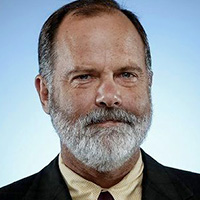In the closing hours of Gov. Jerry Brown’s final bill-signing session last month, he quietly approved legislation that reversed his own work from decades earlier and partially opened California police officer records that he himself had put off-limits during his first tour as governor. Brown, whose bill-signing statements are often works of estimable prose, made no public comment on his decision to overrule himself by approving this new legislation.
What may be more important than the specifics of each bill – both of which are sensible, moderate attempts to balance the interests of officers and the public – is that unions representing the officers fought these proposals and suffered a rare legislative defeat. This could portend a new alignment of political forces in Sacramento; if so, that would be the greatest achievement of this legislation.
One bill, AB 748, requires police departments to release body-worn video and audio recordings within 45 days unless it would interfere with an investigation. The second, SB 1421, makes records of officer shootings and other major uses of force open to public scrutiny under the California Public Records Act. It also allows public scrutiny of incidents in which police officers are found to have committed sexual assault or lied on duty.
Until now, those records have been barred from scrutiny by a bill Brown signed in 1978, so his signature this time corrects a mistake he made 40 years ago. The new legislation is a testament to long, persistent efforts by a dedicated police reform and open-government community, reaching back to the important work of the Christopher and Kolts Commissions in Los Angeles and including effective lobbying by the California Newspaper Publishers Assn. and individual newspapers, most notably The Los Angeles Times.
The police unions fought the new legislation each step of the way. After demonstrators protested at the wedding of an officer involved in a Sacramento shooting earlier this year, a leader of the Peace Officers Research Assn. of California warned that the new legislation, if enacted, would encourage more such demonstrations. “There would be a greater potential for officers and their families being harmed by having all of their information being put out publicly,” Brian Marvel, who heads the organization, told the Times.
That’s nonsense. There is no evidence that any officer has ever been harmed by disclosure of the kind of information this legislation permits. But it is the kind of nonsense that too often carries the day in Sacramento. What’s worse is that Marvel and others attributed support for these two bills to a turn in public opinion against police – an indication that Black Lives Matter and other such groups have soured the public against police officers themselves.
If that were true, it would be tragic. Officers who do their jobs responsibly have – and deserve – the support of the public. Fortunately, recent debate in Sacramento suggests nothing close to diminishing respect for police officers. Legislators and the governor may have demonstrated an unwillingness to accept the demands of police unions, but that’s a far cry from turning against police officers. Indeed, it suggests a useful distinction.
Merrick Bobb, executive director of the Police Assessment Resource Center (where I serve as contributing editor), notes the dangers of assuming that officers and their unions have identical interests.
“For sadly misguided reasons, over the past 20 years or more, upper police managers have too often ceded to unions classical management rights to control, discipline, and demand best practices from the officers they purport to supervise,” he said last week. “Unions are vital to assure good salaries, benefits, working conditions, and basic fairness, but they push too far when they attempt to write policy and exercise management prerogatives.”
As Bobb’s pointed phrase, “purport to supervise,” suggests, that is an important and too-often overlooked point. Public officials – state and local – have in recent years faced many tight budgets and have allowed unions to assume more responsibility for setting policy in return for holding the line on salaries. This is bad for everyone. Police officers – as well as teachers and other public employees – end up with less pay than they deserve, while their unions end up having too much say in policy.
Police officers should make more money, and their unions should fight for that. But neither police officers nor their unions should decide how much oversight the public has over their work. That’s the business of elected and appointed civilians, to whom the police should answer. Officials who give up their responsibility to oversee the police have failed the public and, indirectly, hurt police officers themselves.
The public will better understand the work of police if it has access to audio and video recordings that show officers doing their jobs. And the public has every right to records of officers who have shot people or been found guilty of breaking the law or committing serious administrative violations. Those are both admirable steps forward.
But if this legislation helps to emphasize the proper distinction between civilian leadership and unions in setting workplace policy, it will have accomplished something not just significant but historic.
— By Jim Newton























